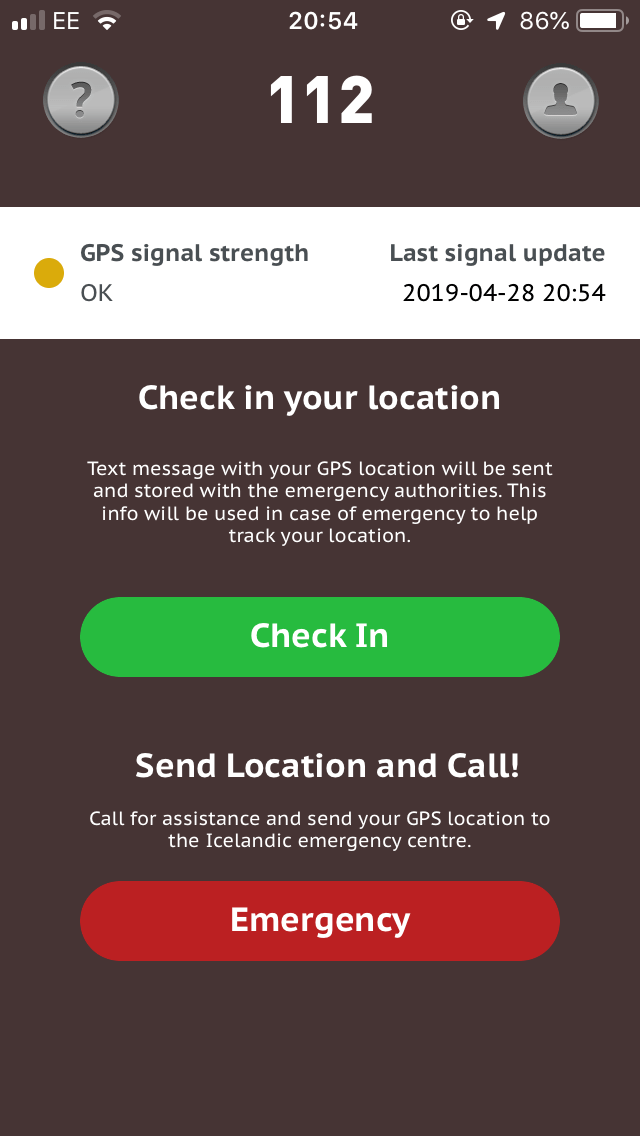If you’re out and about in Iceland on your own – and by on your own, I mean without a professional guide/driver/tourist personnel – you should know about ICE-SAR. That’s the Icelandic Association for Search & Rescue. They’re the people who will come and rescue you if you decide to have a picnic on an iceberg at Jökulsárlón or ignore the warning signs at Reynisfjara or get lost on the Laugarvegur trail. They’re all volunteers and a startling proportion of the Icelandic population are members. There are, according to the website, “thousands of people” who can be called upon to assist.
Hopefully your involvement with them as a tourist or traveller will be limited to use of their Safe Travel resources. Go to safetravel.is and log a Travel Plan with them before you go anywhere. You might think you’re just driving around the Golden Circle like everyone else but you don’t know when the weather’s going to close in and strand you on the heath road to Þingvellir or when you’re going to fall into Gullfoss or anything else and if ICE-SAR know who you are and where you’re meant to be, they can come to the rescue or in the worst case scenario, they can alert your emergency contact. You give them your details and your contact details and your emergency contact details, your route, your equipment etc etc. There’s also Trip Monitoring, which I haven’t used, but I assume you check in with them along your trip and if they don’t hear from you, they’ll come and get you.

And then there’s their app, 112 Iceland. If you press the red button on the app, it texts your location to ICE-SAR to come and rescue you. If you press the green button, it just texts your location as a check-in and then in an emergency, they can see where you’ve been and figure out where you might be next. It only stores the last five locations and the website says “don’t worry, you are not disturbing anyone – except for your big computer who wants to be disturbed” so don’t worry about that. Iceland has so many tourists and so many that aren’t as careful or sensible as they should be and of course, conditions can change very quickly and it’s very helpful for the authorities to know who’s ok and who’s not. Remember what I said about the simple drive to Þingvellir? There’s an active volcano between Reykjavik and Þingvellir. It’s extremely unlikely to erupt – like, extremely unlikely but Iceland has a volcanic eruption every four to five years and the last one started up in 2014. It’s very unlikely that you’ll be caught in the jökulhlaup from Katla while driving between Skógafoss and Vik or from Grímsvötn on your way to Skaftafell – that’s the massive destructive nigh-on world-ending volcanic flash flood rushing down from the glacier that tears off pieces of mountain and washes away bridges and roads as if they’re made of matchsticks – but if you are, you’ll be glad ICE-SAR knew where you were headed.

ICE-SAR get a lot of ridiculous call-outs. In 2015, a group of British “adventurers” – read that as a group of idiot laaads – trying to make an unsupported winter crossing of Iceland had to be rescued three times and aborted their planned 18-day trip after the third. That’s three times in less than two and a half weeks. It made international news. People attempting to climb on glaciers without equipment or training wearing clothes unsuitable even for shopping in Reykjavik. Tourists who accidentally chase their drones up mountains and can’t get down again. People crossing major rivers in small cars. All sorts of stupid.
Speaking of crossing rivers in small cars – Iceland has a few extra bits of fun on the road that other countries might not. So another thing safetravel has done is make a “drivers test” quiz to make sure you’re aware of them all. I’ve driven there a few times so I know all the theory, even if it’s not always necessarily that easy to apply in practiec.

Last word on driving: this is the website/app you go to for information about road conditions. Storms and other bad weather close roads quite regularly, Interior roads are closed due to heavy snow for more than three quarters of the year, sometimes there are floods or volcanic activity. ICE-SAR will show you where there’s something to be aware of.

But they also deal with the ordinary and domestic. Locals who go missing. People with dementia. Floods, avalanches, eruptions, earthquakes. These people are Iceland’s extra emergency service. They’re great and can I emphasise, they’re volunteers.
If you want to help them, the best way you can do that is by being safe & sensible, using the safetravel contact stuff and reading their resources. Be a person they don’t have to rescue. If you want to do something more proactive, you can donate. Money helps a volunteer organisation a lot.